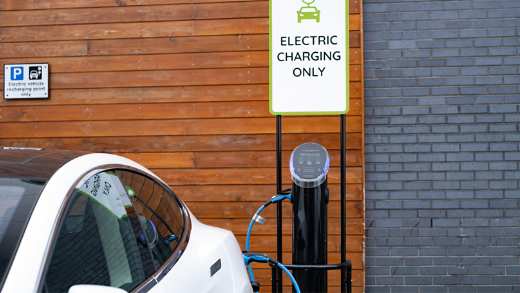
The Aviva Edit
Insightful reads from our money, insurance and health blog
Helping you manage your money
Today's cost of living affects us all but in these uncertain times, there are ways to navigate these choppy financial waters.

The five things you must do when your partner or adult child moves in

Money management masterclass: the ultimate budgeting template
Support with the cost of living
With the rising cost of living, we want our customers to feel supported. We've put together some practical tips and resources to help you stay on top of your finances.
Get cost of living support about Support with the cost of living
Dig deeper into the subjects that matter to you
We've split our most popular step-by-step guides, the latest expert advice and relatable first-hand stories into topics - so you can read the stuff you really care about.

Floods, storms and extreme weather
Find out how to protect your home, belongings and stay safe during floods, storms and other extreme weather conditions here.
Read more about Floods, storms and extreme weather

Electric vehicle hub
From hunting for charging points to busting myths about buying an electric car, here’s what you need to know about making the switch.
Plug into electric content about Electric vehicle hub

Figure out your financial puzzles
Confusing car insurance? Puzzling pensions? We can help lighten your load and help make these conundrums click.
Make it click about Figure out your financial puzzles

Unpuzzling car insurance
Whether you want to pay less for your premium or need help with a complex claim, we’ll help smooth your path through even the most complicated journeys.
We'll help you get covered about Unpuzzling car insurance
Managing your money
Empowering you to be confident with your money and equipped to deal with whatever life throws your way.
Savings

Retire well about Understanding flexi-retirement: could it be right for you?

Meet the retirees about Flexi-retirement: What’s it really like?

How does it work about Marriage allowance: your ‘I dos’ could mean you pay less tax

Things to consider before withdrawing about Why you should think twice before taking money from your pension
Debt management

Get the debt know-how about A guide on clearing debt
Personal finance

Be in the know about Your guide to the essentials of Insurance Premium Tax

Joint finances explained about How to combine finances as a couple
Young people's finances

Be in the know about Everything you need to know about gifted deposits and family springboard mortgages
Protecting your things
Helping you look after what means most to you, so you can enjoy your things, not worry about them.
Home

Make the effort about Nine home upgrades that could add value and help the environment

Keep your garden safe about Protecting your garden with home insurance

Read more about Two wheels rule the road, but is your bike properly insured?

Read expert advice about How to cope after a burglary
Driving

Here’s how about 12 tips for anxious drivers

Learn from the experts about Should I buy my teen a car?

See what it covers about The five surprising things your car insurance might cover - and three it probably won’t

Drive smart about How to save money on fuel
Travel

Get covered about Costa del Cornwall – holidaying in the UK still needs insurance

Chase the sun about Holidaying with friends? Get your group’s insurance right

Party on about Stags and hens: why booking should be a group effort

Learn to lock-up right about Check your locks before jetting off: the security habits that can help protect your home
Claims

See what it covers about The five surprising things your car insurance might cover - and three it probably won’t

Read more about Home emergencies – why it pays to expect the unexpected

How you’re protected about What to do if you're hit by an uninsured driver
Your life
Holding your hand through university to retirement, and everything in between.
Retirement

It takes a plan about Retirement bliss with the ultimate bucket list

It takes a plan about Single? Seven things to think about when planning retirement
Work
In the news
News and views about the world we live in.

Read more about Two wheels rule the road, but is your bike properly insured?

Let's go about The 2030 petrol and diesel ban: your questions answered
Surveys and reports
Read the report about Building Future Communities report 2023
Read more about Aviva report on vehicle theft
Read more about How we live in 2020 from work and home to travel
More from us
Ways to save yourself money and lend a hand in your community.
Aviva Community Fund
Backing the clever ideas that move communities forward.
Apply now about Aviva Community Fund
Protect yourself from fraud
Keeping you and your money secure is our top priority. See what we're doing to protect you from fraud – and what you can do too.
See what you can do about Protect yourself from fraud
